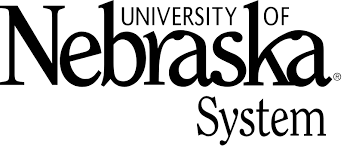![]()

Three years into its implementation, the Nebraska Career Scholarships, a state-supported initiative that provides scholarships to students in high-demand fields, is having a significant impact on student success and workforce growth at the University of Nebraska.
Data from the university’s latest report to the Nebraska Legislature, submitted earlier this month, show the Career Scholarships are providing significant returns in terms of student retention, graduation and employment.
This academic year, 1,120 University of Nebraska students have received Career Scholarships. Half of those students are pursuing healthcare-related degrees, followed by engineering, computer information systems and math – all high-growth areas for Nebraska’s workforce.
Additionally, more than 92 percent of Career Scholarship recipients from the 2022-23 academic year either graduated or are still enrolled in a scholarship-eligible program this year. That compares to 80 percent for non-Career Scholarship recipients, evidence that the program is helping to drive student success and workforce development.
“The Career Scholarships are a win-win for students and Nebraska’s economic competitiveness. I’m so pleased that this program is already creating significant impact for our state,” said University of Nebraska Interim President Chris Kabourek.
“These scholarships are an important part of our goal to keep more of our best and brightest students here in our state. I know we can do even more to be competitive for student talent, and I look forward to working closely with Governor Pillen and other state leaders to create additional opportunities for every Nebraska student to attend college, pursue their dreams and start great careers right here in Nebraska.”
Approved in 2020 by the Legislature and then-Gov. Pete Ricketts and implemented the following year, the Career Scholarships support Nebraska students enrolled in eligible high-demand programs and who meet certain academic requirements. Students receiving the scholarship must complete a Nebraska-based internship, apprenticeship, clinical position or other relevant work before graduation.
The program has been continued under the leadership of current Gov. Jim Pillen, with $8 million allocated to the university this year for Career Scholarships. Scholarship funds are also provided to Nebraska’s state and community colleges.
“The Career Scholarships are doing exactly what they were intended to do: create meaningful opportunities for students and grow Nebraska’s workforce. I know the impact of this forward-thinking program will only grow in the years to come,” said Board of Regents Chairman Tim Clare, who testified before the Legislature in support of the Career Scholarships.
“I thank former Governor Ricketts, Governor Pillen and our elected leaders for their support for this important effort. Working together, we can make sure Nebraska is a top choice for every student who’s willing to work hard and create a better future for themselves.”
The legislation creating the Career Scholarships requires the university to submit an annual report on the program’s outcomes. Other highlights from this year’s report:
· At the beginning of the current academic year, 6,721 University of Nebraska students were enrolled in programs eligible for the Nebraska Career Scholarships, an increase over 5,337 last year.
· Of the 5,337 students enrolled in scholarship-eligible programs last year, 340 have graduated, including 62 in fall 2002. Three-fourths of those fall 2022 graduates were working in Nebraska as of early 2023 with an average salary of $54,000. Data for students who graduated in spring 2023 and summer 2023 is not yet available.
· About 15 percent of Career Scholarship recipients participated in an internship, apprenticeship, clinical position or related work in the previous academic year. That figure is expected to rise as more Career Scholarship recipients enter their junior and senior years.
University of Nebraska students interested in the Career Scholarships are encouraged to learn more at the University of Nebraska-Lincoln, University of Nebraska at Omaha and University of Nebraska at Kearney.
